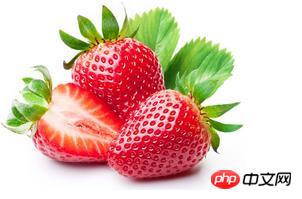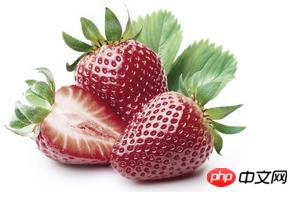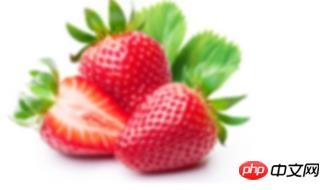 Web Front-end
Web Front-end
 CSS Tutorial
CSS Tutorial
 Detailed graphic explanation of the use of the filter attribute in CSS3 (example code)
Detailed graphic explanation of the use of the filter attribute in CSS3 (example code)
Detailed graphic explanation of the use of the filter attribute in CSS3 (example code)
I recently accidentally discovered a particularly cool attribute on the Internet, which is the filter attribute in CSS3. This attribute can change the color of the picture. One picture can present multiple effects. Next I will introduce to you how to use the filter filter in CSS3, as well as an example to demonstrate the effect of the filter filter. If you are interested, please continue to read below.
Many people don’t know what CSS filter means. In layman's terms, filter refers to a filter. The officially defined filter attribute can set the visual effect (such as blur and saturation) of an element (usually  ).
).
Filter attribute syntax: filter: none | blur() | brightness() | contrast() | drop-shadow() | grayscale() | hue-rotate() | invert() | opacity() | saturate() | sepia() | url();
Usage method: Just add the filter attribute directly to the image that needs to be set.
You can see that its attributes have many optional values. Let’s briefly introduce their meaning
1, grayscale grayscale
2, sepia brown (with a variety of Retro old photo feeling)
3, saturate
4, hue-rotate
5, invert
6, opacity Transparency
7, brightness
8, contrast
9, blur
10, drop-shadow
Example Demonstration 1:
Use the filter attribute to convert the image into a grayscale image, and the value is the conversion ratio. When the value is 100%, it is completely converted to a grayscale image. When the value is 0%, there is no change in the image. When the value is between 0% and 100%, it is between complete grayscale and the original image. In this example, the grayscale is set to 50%
HTML code:
<img src="/static/imghw/default1.png" data-src="img/草莓.jpg" class="lazy" style="max-width:90%" height="192px"/ alt="Detailed graphic explanation of the use of the filter attribute in CSS3 (example code)" >
CSS code:
img {
-webkit-filter: grayscale(50%); /* Chrome, Safari, Opera */
filter: grayscale(50%);
}Rendering:


The former one is the original image, and the latter one is the effect of setting 50% grayscale.
Example 2:
Use the filter attribute to set the image to Gaussian blur, and the "radius" value sets the standard deviation of the Gaussian function, or the screen How many pixels are blended together, so the larger the value, the blurrier it is; if there is no set value, the default is 0; this parameter can set the CSS length value, but does not accept percentage values.
img {
-webkit-filter: blur(1.5px); /* Chrome, Safari, Opera */
filter: blur(1.5px);
}Rendering:

In this example, set the blur to 1.5px to give the image a Gaussian blur effect, as shown in the picture.
Summary: The above introduces how to use the image filter attribute filter in CSS3. It has many attribute values. Here are only two demonstrations. As for other attributes, friends can make their own Give it a try, you might have unexpected results.
The above is the detailed content of Detailed graphic explanation of the use of the filter attribute in CSS3 (example code). For more information, please follow other related articles on the PHP Chinese website!

Hot AI Tools

Undresser.AI Undress
AI-powered app for creating realistic nude photos

AI Clothes Remover
Online AI tool for removing clothes from photos.

Undress AI Tool
Undress images for free

Clothoff.io
AI clothes remover

AI Hentai Generator
Generate AI Hentai for free.

Hot Article

Hot Tools

Notepad++7.3.1
Easy-to-use and free code editor

SublimeText3 Chinese version
Chinese version, very easy to use

Zend Studio 13.0.1
Powerful PHP integrated development environment

Dreamweaver CS6
Visual web development tools

SublimeText3 Mac version
God-level code editing software (SublimeText3)

Hot Topics
 1378
1378
 52
52
 How to write split lines on bootstrap
Apr 07, 2025 pm 03:12 PM
How to write split lines on bootstrap
Apr 07, 2025 pm 03:12 PM
There are two ways to create a Bootstrap split line: using the tag, which creates a horizontal split line. Use the CSS border property to create custom style split lines.
 The Roles of HTML, CSS, and JavaScript: Core Responsibilities
Apr 08, 2025 pm 07:05 PM
The Roles of HTML, CSS, and JavaScript: Core Responsibilities
Apr 08, 2025 pm 07:05 PM
HTML defines the web structure, CSS is responsible for style and layout, and JavaScript gives dynamic interaction. The three perform their duties in web development and jointly build a colorful website.
 How to insert pictures on bootstrap
Apr 07, 2025 pm 03:30 PM
How to insert pictures on bootstrap
Apr 07, 2025 pm 03:30 PM
There are several ways to insert images in Bootstrap: insert images directly, using the HTML img tag. With the Bootstrap image component, you can provide responsive images and more styles. Set the image size, use the img-fluid class to make the image adaptable. Set the border, using the img-bordered class. Set the rounded corners and use the img-rounded class. Set the shadow, use the shadow class. Resize and position the image, using CSS style. Using the background image, use the background-image CSS property.
 How to use bootstrap in vue
Apr 07, 2025 pm 11:33 PM
How to use bootstrap in vue
Apr 07, 2025 pm 11:33 PM
Using Bootstrap in Vue.js is divided into five steps: Install Bootstrap. Import Bootstrap in main.js. Use the Bootstrap component directly in the template. Optional: Custom style. Optional: Use plug-ins.
 How to resize bootstrap
Apr 07, 2025 pm 03:18 PM
How to resize bootstrap
Apr 07, 2025 pm 03:18 PM
To adjust the size of elements in Bootstrap, you can use the dimension class, which includes: adjusting width: .col-, .w-, .mw-adjust height: .h-, .min-h-, .max-h-
 How to set up the framework for bootstrap
Apr 07, 2025 pm 03:27 PM
How to set up the framework for bootstrap
Apr 07, 2025 pm 03:27 PM
To set up the Bootstrap framework, you need to follow these steps: 1. Reference the Bootstrap file via CDN; 2. Download and host the file on your own server; 3. Include the Bootstrap file in HTML; 4. Compile Sass/Less as needed; 5. Import a custom file (optional). Once setup is complete, you can use Bootstrap's grid systems, components, and styles to create responsive websites and applications.
 How to use bootstrap button
Apr 07, 2025 pm 03:09 PM
How to use bootstrap button
Apr 07, 2025 pm 03:09 PM
How to use the Bootstrap button? Introduce Bootstrap CSS to create button elements and add Bootstrap button class to add button text
 How to view the date of bootstrap
Apr 07, 2025 pm 03:03 PM
How to view the date of bootstrap
Apr 07, 2025 pm 03:03 PM
Answer: You can use the date picker component of Bootstrap to view dates in the page. Steps: Introduce the Bootstrap framework. Create a date selector input box in HTML. Bootstrap will automatically add styles to the selector. Use JavaScript to get the selected date.



